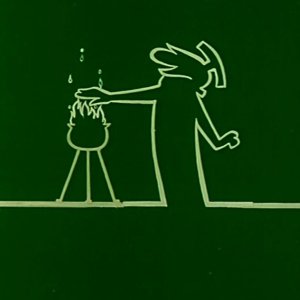
What I loved most:
... regarding the story:
* I loved the characters -- except for a few of them who were hopelessly inhuman in their emotions, all characters have strengths and weaknesses to them. These are not always explored into the minute details but very much obviously there. The characters feel like people.
* All fights for the truth, all struggles for justice are not 100% successful. This is not a fairy tale, where the good guys win and all the bad guys are punished. The system stays firmly in place. Maybe some have learned a lesson, but not all of them.
* And still, things are looking up, at least in the personal lives of the "good" side. There's hope, as long as we are living.
... regarding the technical side:
* The actors are amazing! Facial expressions, body language, all perfectly controlled -- especially hard for the more multi-faceted characters.
* Loved that we get to see the progress of time via the background nature. We start in the bleak winter days and end at early summer -- I wonder if this is accidental or if we may read it as metaphorical.
... regarding the rest:
* No romance! Always a plus for me. Yes, there are two or three scenes, in which there are interactions which could be seen as light flirting or something, and once some short and good-natured heckling, but all of them can be easily ignored and nothing is ever openly acknowledged.
* For a S.Korean crime drama, there are astonishingly few scenes of senseless or exaggerated violence. There is violence, of course, but it always serves the plot in its intensity.
Recommended!
Was this review helpful to you?

When I first watched this series some time ago, I did not know ANY of the actors (yeah, I don't know how I managed that, either) -- and I still liked it. So, it's not all fanservice here. It does feel like a low budget, Covid-influenced production; most of the scenes take place in or around the house, there's only a small cast of characters, it still manages to tell a good story about six people who find strength and support in each other.
One aspect I am not a fan of is the sub-plot about the father, which was a bit too "lakorn"-ish for me. But it's thankfully only a small part of the series.
I love the credit song and it's text -- it's been stuck in my head since I started rewatching this a few weeks ago, and the text is such a comfort.
A short note on the title, "I'm Tee, Me too" is okay -- but the Thai title คนละทีเดียวกัน is great and has many meanings in one sentence!
Maybe like this: คนละ = to each one, each one differently -- ที = Tee -- เดียวกัน -- identical, same.
Or: คนละ = to each one, each one differently -- ทีเดียว = quite, very; a single occasion -- กัน = each other, together.
Or you could read every syllable on its own as one word each; here's a link, and you can find your own translation http://thai-language.com/?blu=pLnF0LfV4LTVwseh0bkI
All of the Tees get their own story, their own problems they have to live with -- and I like how their psychological issues are not completely healed at the end. In that way, the series takes issues of the mind very seriously. And at the same time, the way the problems and the "solutions" are presented are hilarious.
This good balance of comedy and deeper meaning makes it a drama that is well-worth watching.
Was this review helpful to you?

Third time's the charm? Not here.
They say "third time's the charm" in English, so I watched it up to the third episode. I won't watch any more.This is now almost to the one-third mark, and I still have made no emotional connection to any of the characters whatsoever (maybe the hat guy, but that's just because I like hats).
The script is formulaic -- there's the secret crush from highschool, the womanizing tsundere alpha-male-type "top", the spurned ex-girlfriend, the comedic sidekicks, the engineering setting, the sick family member and subsequent money troubles etc.
The acting is bland and uneven -- it's probably mainly the script, but also I think directing choices.
The sets show the low budget, especially in the university spaces.
The GL couple also feels as if someone said: "Oh, GL is all the rage now, let's put that in." and nobody gave even the smallest thought on how a girls couple could work. All their interactions are so ... bizarre.
The roles for the main actors feels like they tried to squeeze into ill-fitting jackets -- especially for Konprot, who they tried to make into a typical "bottom"-type of character with his gentle demeanor, soft voice and the haircut. Thing is, he shouldn't have to: "Manly" men can also have secret crushes, and just because one is the "alpha-male" type, doesn't mean the other cannot be. (That's not to say that bulky and tall men can't be soft-spoken or gentle or shy or whatever, it's just so obvious that the people responsible here thought there should be a stereotypical "bottom").
I wonder what happened here. Did they not find other actors for the script? Did they not find another script for the actors? Or was it initially planned as a parody, and that information got lost somewhere?
Because this series could have been a great parody of the Thai college BLs of past years. Everything is already so over-the-top stereotypical. Then you get a cast that is actually not at all suited for the roles -- which could be played as a strength in a parody. If the director and the actors would have been just a bit more daring to really get into the absurd side of things, I would have had a great time.
As it is, this series is one I won't finish.
Edit: Please note how I did not say a word about subtitles -- even if those were better, the drama's problems would stay the same.
Edit 2: I watched episode 8 with half an ear. "I like women. I like Konprot now." The writer *actually* did a Gay For You and wasn't even ashamed to let Pluem say it out loud?! Unbelievable...
Was this review helpful to you?

Might be better for viewers during a second watch
tl;dr: A simple story told in very subtle ways, with excellent acting and interesting camera work.The first episodes make this series seem like a more depressing version of "BL Drama no Shuen ni Narimashita" but it is not -- the dynamics and the background stories are very much different.
It's a slow-burn romance and does have the often used tropes of non-communication, self-deprecation and mutual pining -- so if you're not a fan of these tropes, you might want to give this one a miss.
The narrative choice to tell only Shirasaki's point of view first and to show Hayami's story then only later, in episodes 7 and 8, is something we've seen in other J-BLs (Mr. Unlucky, Senpai This Can't Be Love or the newer Living with him come to mind). Usually, it works fine. In this case though, I think it was not a good choice.
When we meet Shirasaki first, he is at his lowest, full of self-deprecation -- he is not at all a reliable narrator. Hayami, on the other hand, is quite unreadable -- not because the actor is bad at his job but because this is part of the character (Hayami's friend tells him exactly that in episode 7). So, for the first six episodes, we only get one (skewed) side of the story.
Because of real life issues, I had to take a break in episode 8 -- and after that I restarted the whole series. With the knowledge of Hayami's backstory, I was able to see things differently -- and what seemed depressing and a bit flat the first time, was actually just very subtle acting by both main actors.
Regarding the acting, the main actors are, in my opinion, excellent. Minuscule movements and facial expressions show the inner life if a viewer cares to look closely. Quite a few scenes have been taken in one single shot -- which shows the how good the actors really are.
Speaking of shooting the drama: I was intrigued by some camera angles -- we look through windows and through cameras, sometimes we are in vey tight spaces, feelinga bit claustrophobic -- and then some sces are wide-angle shots, and everything is only seen from a distance. Use of hand-held cameras in some scenes show the instability of the actor's emotions. Even just finding out how these choices relate to the character's emotions would make a rewatch interesting.
While I don't like the opening song, I do love the background music -- the piece itself was lovely, melancholic but strangely uplifting at the same time. Silence also played a big part in enhancing the scenes.
Overall, I think this series is not one to watch and forget immediately, rather it is to be savoured, and deserves a close look at its details.
Was this review helpful to you?

What will you sacrifice to make your loved ones happy?
What might be important to know:* This is not an action/crime series.
Yes, there are some action scenes. And yes, there is a crime ring, drug smuggling and a murder case. But it's not at the centre of the plot. The main characters are even only marginally involved -- but the crime sub plot majorly influences certain reactions and decisions.
* This is not (only) a fluffy rom-com.
Actually, after the meet-cute and the scenes when Min folows Q in episode 1 and the preview for epiosde 2, I was convinced that this would be a shallow rom-com full of tropes and over-the-top Thai humour.
It IS very fluffy at times, very cute, with two soft boys who fall deeply in love with each other. But it is not only that.
In its core, the drama explores a much deeper question: How much will you sacrifice for the people you love?
Will you sacrifice your money, your health, your prospects in life? Your life itself? Will you do things you would never do otherwise? Will you sacrifice your own happiness?
And are these sacrifices you make -- are they the right choices? Will they make the other person happy?
I love how these questions are slowly asked and how they are answered differently over the course of the series. Both Min and Q search for the right way to achieve happiness for their loved ones -- with twists and turns, with laughter and tears. As the audience, we get to slowly learn about their lives and history, what made them who they are now and how traumatic events in their lives have shaped their views.
The script is well-written in that regard, there are no dragging parts, and the events of the present and the past are told in a way that they make a cohesive hole.
There are several inconsistencies, both in the writing and the executio. Just to mention some of the most obvious: the scene in front of Q's house in episode 7 would have had more impact if the actors hadn't swapped places for the close-ups, which brought me out of the immersion into an extremely emotional scene. I don't understand why Min's bedroom was restored to its original state after Min had taken care to rearrange everything in episode 2. Also, Min was shown as speaking English very badly (ep. 1), but later, he has no problems with instructing tourists at the surfing school.
One major flaw in the writing is the character of "James". I think he should have been two characters -- because he both has connections to the criminal underground (which are never explained nor explored, and Yada or indeed anyone else doesn't even really seem to know or notice him) and he is this good friend and mentor for Min with connections in the film industry, who is supposed to be extremely likeable and trustworthy? It would not have been hard to write a second character for the criminal connected side (another stuntman, maybe?), and keep James for the rest.
Mhen was unfortunately a bit bland as a character, he was never able to become more than "little brother who is ill and loves his older brother very much" -- and though Ohm Thipakorn obviously tried his best, he was not able to give his character much more colour. (Also, how does he get a heart transplant that quickly?)
Throughout the series, it's never clear how much time has passed, so that some scenes seem to happen very fast after another, when it's probably not the case -- a flaw a lot of Thai BLs seem to share.
But I can overlook these flaws because of the story-telling, the main theme of the drama, the solid technical execution -- and the acting. Both Ohm Pawat and Leng Thanaphon are very convincing in their roles. They were able to make me feel with their characters, to be immersed in their story and to believe their emotions.
Leng surprised me, because I was a bit sceptical if a rookie would be able to portray a character that is at odds with himself and with the world -- and indeed, especially in the beginning, when Q is trying to show one kind of emotions to the outside, while he has opposite emotions on the inside, Leng reaches his limits fast. In his defense, these scenes would have been a challenge for more experienced actors, too.
Overall, I find, again, that it's best to follow a drama's story without preconceptions about what it "should" be, but instead listen to what the writer, the director and the actors are showing us -- and here, they showed us a story about how traumatic experiences can shape your world. They showed us a story about about devotion, about love between parent and child, between brothers, between lovers and what it means to make another person truly happy.
Edit:
STOP!
Before you downvote this review, would you be so kind and leave a short note with your reason? I did my best to write a good review -- and I'd like to know how to improve. Thank you!
Was this review helpful to you?


 4
4














